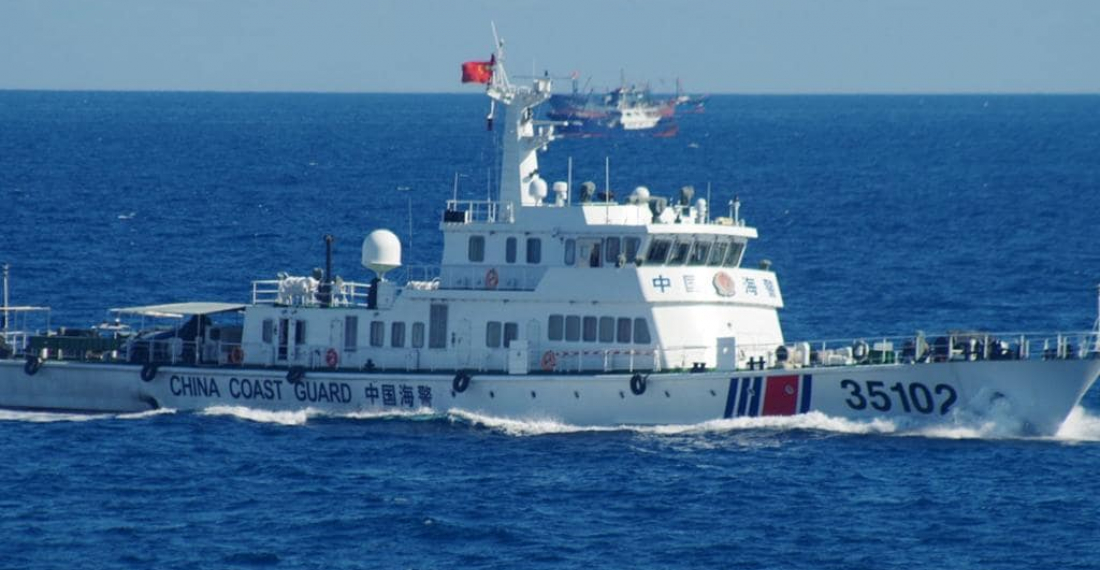A tense situation is developing in and around the South China Sea as China continues to flex its muscles through the projection of military power, provoking a response from both the United States, as well as other countries in the region. China is likely to try to test early the resolve of the incoming Biden administration to protect allies in the region.
Nuclear Capable Chinese Bombers and fighters violate Taiwan's airspace
Taiwan and the US have warned China after it flew nuclear-capable bombers and fighters over Taiwanese airspace. The US has urged China to stop pressuring Taiwan.
Taiwan's airforce issued warnings after eight nuclear-capable Chinese bombers and four fighter jets entered the southwestern corner of the island nation's air defense zone Saturday.
"Airborne alert sorties have been tasked, radio warnings issued and air defense missile systems deployed to monitor the activity," said the Defense Ministry in a brief statement.
China, which continues to claim Taiwan as its own territory, in recent months have been conducting almost daily sorties over the waters between the southern part of Taiwan and the Taiwan-controlled Pratas Islands in the South China Sea.
However these flights have generally consisted of only one or two reconnaissance aircraft. The presence of so many Chinese combat aircraft on this mission — including an anti-submarine aircraft, eight H-6K bombers, and four J-16 fighter jets — is unusual.
A map provided by Taiwan's Defense Ministry showed that the Chinese aircraft flew over the same waters where the most recent Chinese missions have been taking place, well away from mainland Taiwan.
News of the incursion brought a swift statement from the US State Department, urging China to stop pressuring Taiwan while reaffirming its commitment to the nation.
"We urge Beijing to cease its military, diplomatic, and economic pressure against Taiwan and instead engage in meaningful dialogue with the nation's democratically elected representatives," said State Department spokesman Ned Price.
USS Theodore Roosevelt strike group enters South China Sea
In the meantime US military sources said that on Saturday, 23 January, the Theodore Roosevelt Carrier Strike Group entered the South China Sea to conduct routine operations.
The Group "is on a scheduled deployment to the U.S. 7th Fleet to ensure freedom of the seas, build partnerships that foster maritime security, and conduct a wide range of operations", US Navy sources said
The Group consists of USS Theodore Roosevelt, Carrier Air Wing 11, the Ticonderoga-class guided-missile cruiser USS Bunker Hill , Destroyer Squadron 23, and the Arleigh Burke-class guided-missile destroyers USS Russell and USS John Finn.
"The 7th Fleet is the U.S. Navy's largest forward-deployed fleet and employs 50 to 70 ships and submarines across the Western Pacific and Indian Oceans. 7th Fleet routinely operates and interacts with 35 maritime nations while conducting missions to preserve and protect a free and open Indo-Pacific region", the US Navy sources said.
US assures Japan
In a separate development, the new US Secretary for Defence, Lloyd Austin assured his Japanese counterpart, Nobuo Kishi, of the US readiness to defend Japan, including the Senkaku Islands that are claimed by China.
"Defense Secretary Austin confirmed that Article 5 of the US-Japan Security Treaty covers the Senkaku Islands and that the US is against any unilateral attempt to change the status quo in the East China Sea," the Pentagon said in a statement.
Defense Secretary Austin confirmed that Article 5 of the US-Japan Security Treaty covers the Senkaku Islands and that the US is against any unilateral attempt to change the status quo in the East China Sea," the Pentagon said in a statement.
China authorises Coast Guard to shoot on foreign vessels
On its part China has passed legislation authorising its Coast Guard to fire on foreign vessels.
China's top legislative body, the National People' s Congress Standing Committee, approved a new law on Friday (22 January) that authorises coastguards to fire on foreign vessels in disputed waters and destroy constructions on islands China's jurisdiction, reports Chinese media. The law will take effect on 1 February 2021.
The new coastguard law increases maritime tensions in the disputed waters of the South China Sea. For the first time, the law explicitly allows the Chinese coast guard to use "all necessary means" to deter foreign vessels' threats in waters "under China's jurisdiction".
Beijing's approval has incorporated the coastguard into its armed police force. It will also allow the coastguard to carry out pre-emptive strikes without prior warning if commanders deem it necessary. Coastguard vessels have grown in size recently, and operations near disputed islands in the South China Sea have intensified. The coastguard operates under the command of the military.
Concern at lack of dialogue between military commands
There is concern that the increased military activity in the South China Sea may lead to unplanned incidents that can quickly spiral into an international crisis. Contact between the military commands of the US and China have cooled down recently, leaving little opportunity for issues to be discussed and crisis defused.






